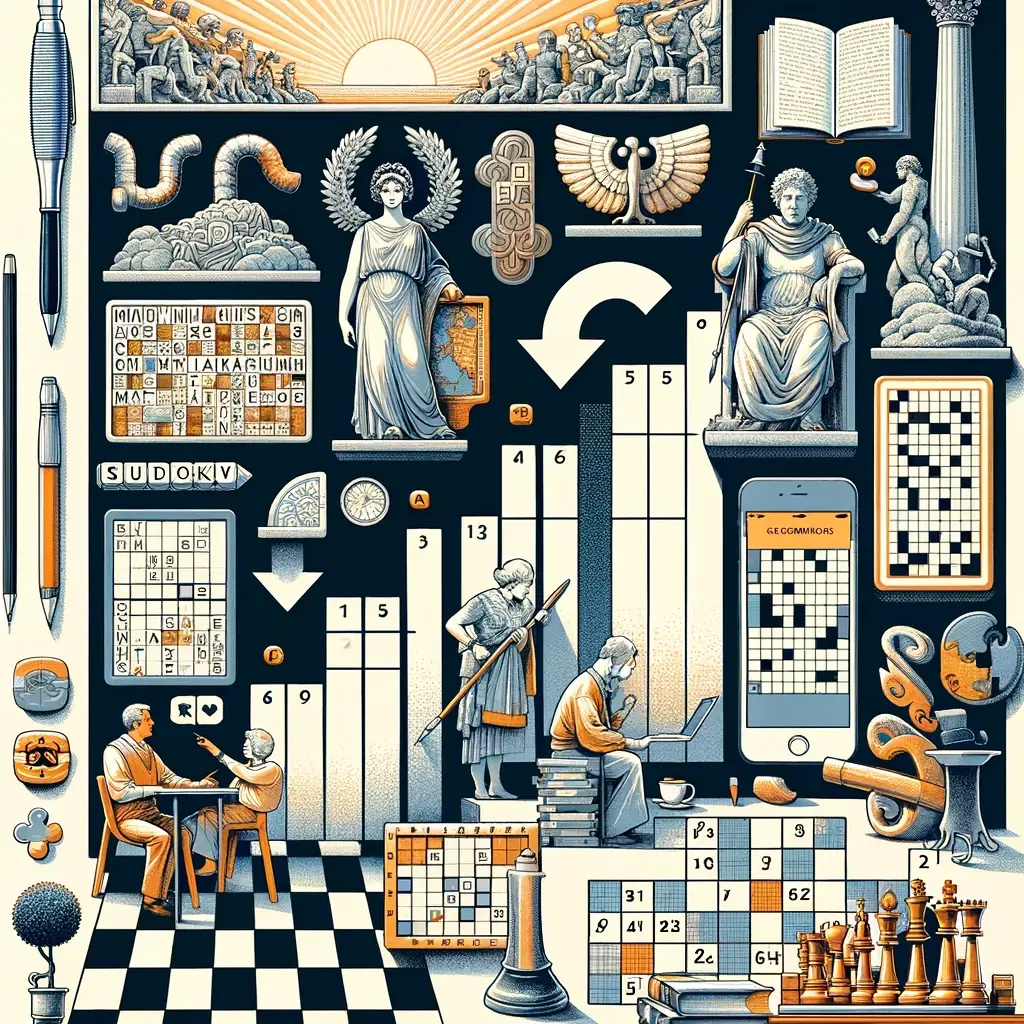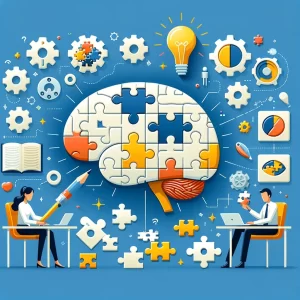Brain Games Through the Ages: A Historical Perspective
Introduction
Puzzle enthusiasts, have you ever paused mid-puzzle to ponder its origins? The history of brain games is as intricate and fascinating as the puzzles themselves. From ancient civilizations to modern-day digital platforms, puzzles have been a constant source of intrigue and intellectual challenge. Let’s embark on a historical journey to discover the evolution of brain games and appreciate how they’ve shaped our intellectual heritage.
The Ancient Roots
The history of puzzles dates back to ancient civilizations. One of the earliest known puzzles is the Ostomachion, attributed to Archimedes in the 3rd century BC. This geometric puzzle, resembling a jigsaw, involved arranging 14 pieces to form a square. It wasn’t just for entertainment; it was also used for studying area and geometry.
The Birth of Crosswords
Fast forward to the 20th century, the crossword, a staple in modern puzzle books, was born. The first crossword puzzle was created by Arthur Wynne, a journalist from Liverpool, and published in the New York World in 1913. It quickly became a popular pastime, and by the 1920s, crosswords were a craze in the US and Europe, appearing in almost every newspaper.
Sudoku – A Modern Twist
Although Sudoku feels modern, its roots are surprisingly old. It evolved from “Magic Squares,” a mathematical concept known in ancient China. The version of Sudoku we know today was popularized in Japan in the 1980s and gained worldwide popularity in the early 2000s. It’s a brilliant example of how a simple concept of numbers can become a globally engaging brain game.
The Role of Puzzles in Education
Throughout history, puzzles have played a significant role in education. In the 18th and 19th centuries, puzzles were used as educational tools for children. Map puzzles, where children would piece together countries or states, were particularly popular. They weren’t just fun; they were tools to learn geography, history, and even morality.
Cultural Significance
Different cultures have contributed various forms of puzzles. In India, the game of chess, originally called “Chaturanga,” was invented in the 6th century, emphasizing strategic thinking. In Africa, the Mancala game, which involves counting and strategizing, has been played for centuries. Each culture has its unique puzzle tradition, reflecting its values and ways of thinking.
Puzzles in War and Diplomacy
Interestingly, puzzles have also been used in war and diplomacy. During World War II, crosswords were used to recruit codebreakers. In the Cold War era, chess became a symbol of strategic superiority, culminating in the famous 1972 match between Bobby Fischer and Boris Spassky.
The Digital Era
The advent of the digital age has revolutionized puzzles. Today, we have access to an endless variety of puzzles at our fingertips. Digital platforms have made puzzles more accessible and have introduced interactive and multimedia elements, bringing a new dimension to traditional puzzle-solving.
Conclusion
As we journey through the annals of puzzle history, it’s clear that brain games are more than mere pastimes. They are a testament to human intellect and creativity. At Evan Hollis, we honor this rich history by bringing a diverse collection of puzzles to you. Our books are not just compilations of puzzles; they are a continuation of a centuries-old tradition of challenge, learning, and enjoyment.


